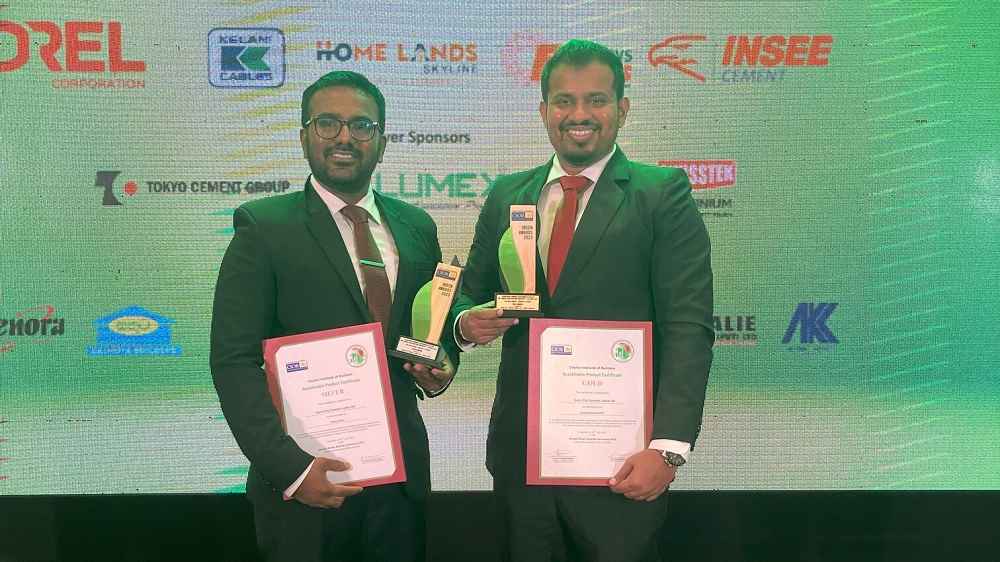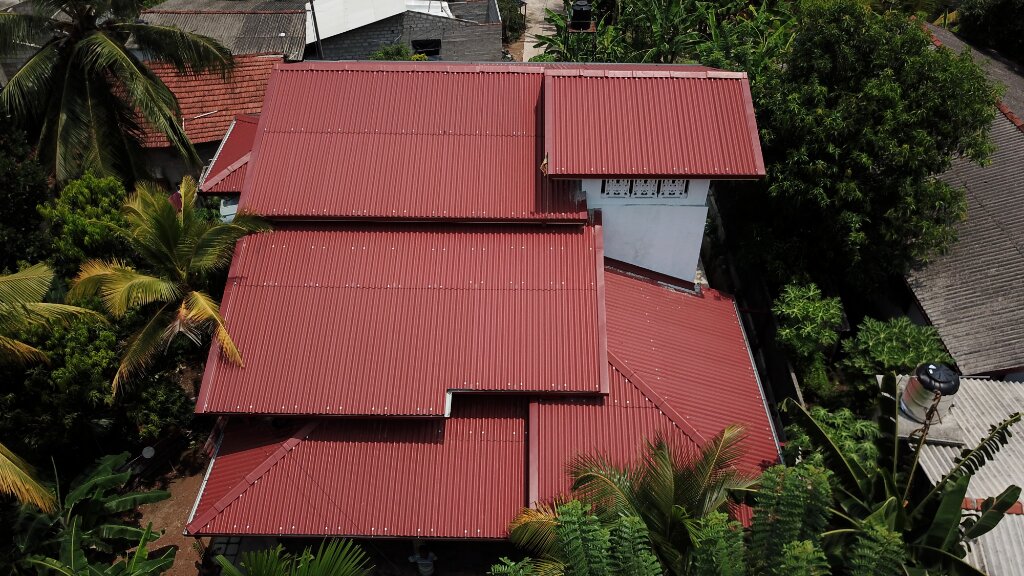Sri Lanka has a long established history of using fibre cement roofing sheets, namely chrysotile roofing sheets which are otherwise referred to as white asbestos. Being the choice of construction giants across the local industry, chrysotile has maintained a presence of over 60 years in Sri Lanka.
The reason for the success of this material is quite simple, socio economic conditions of those in rural areas of Sri Lanka along with the subset of the population who fall under the urban poor category depend on these sheets for essential roofing. In the past, such households depended on roofing methods such as palm leaves and other tree leaves.
Chrysotile burst into popularity thanks to its idyllic properties; UV ray resistance, corrosion resistance, durability, lengthy service life and of course, it came at a price that did not unsettle the poor who were in need of shelter.
As the industry stands today, Chrysotile Cement Roofing Sheets cover 35% of the total roofing sheet market requirement. Supplying this requirement year on year are four manufacturing plants which import roughly 400 metric tonnes of chrysotile each year from the Russian Federation. Moreover, the industry in Sri Lanka supports over 30,000 persons through direct and indirect employment.
However, regardless of the importance of chrysotile roofing sheets, the industry has faced constant backlash and baseless allegations claiming that these sheets pose a threat to the health of our society.
Debunking the myths
While roughly 400 minerals are drawn from the earth naturally in fibrous form, only the use of six of these (chrysotile included) are regulated by authorities. The collective term, ‘Asbestos’ was used to refer to specifically two distinct types of minerals – Serpentine and Amphiboles. The use of the latter is banned globally, while serpentine chrysotile continues to be used by two thirds of the world population.
The WHO is responsible for providing equitable, unbiased and research-based information to all governments around the world. However, research conducted by the WHO with regard to this burning issue has only been conducted in countries that use Amphiboles and not asbestos as a whole. Thus, the resulting report on Chrysotile put forward by the WHO is based on selective information. This information refers to asbestos in every form, regardless of established Biochemical and Scientific differentiation of fibre types.
Despite the constant dialogues on potential health hazards said to have been caused by chrysotile, It must be emphasized that there is no evidence to conclusively establish a
significant correlation between health deterioration, particularly cancer, and exposure to chrysotile among the chrysotile cement roofing sheet users in Sri Lanka.
Furthermore, the confusion of naming two distinctively characterised fibre groups – the Chrysotile and Amphibole groups have also contributed to the negative image built around the particular roofing product which in turn may cause a negative impact on the future of the roofing industry.
An accountable industry with safe manufacturing processes
In order to ensure the continued success of this industry despite the many baseless allegations, manufacturers are compelled to remain responsible throughout the product life cycle.
In Sri Lanka, chrysotile cement roofing sheets are produced using 6 to 8 percent of fibre. The remaining component that makes up a roofing sheet is purely a cement mix. During manufacture, these fibres are encapsulated within the cement matrix so that fibres cannot be emitted into the atmosphere under any conditions.
As a result of this crucial process, a public health risk is non-existent, thanks to this tried and tested manufacturing method.
Conclusive evidence that depicts zero public health and environment risks
The National Building Research Organization (NBRO) has conducted extensive studies on the air quality at various chrysotile cement roofing sheet production sites. The results from these studies have shown conclusive evidence that the emission levels of fibres are far below the standard recommended levels (almost zero).
In addition, The Ministry of Environment has also instructed the NBRO to check the quality of air in all government buildings that have used Chrysotile Cement Sheets to clarify the presence of any health risks. To date, the NBRO has not reported any adverse findings, and all test results show almost zero fibres.
Even in schools around the island, chrysotile cement roofing sheets have been in use for nearly 6 decades. During this large expanse of time, there has not been a single health issue reported in relation to the use of these sheets. This shows that modern-day high
density, non-friable Cement Roofing Sheets do not present risks of any significance to school children.
In conclusion
To an island nation where the majority of the population are poverty stricken, the ability to access affordable materials for housing is essential. The chrysotile cement roofing sheet is not just construction material. It serves as a way to improve the standards of living for communities across the island. With that in mind, it is important for legislators to analyse the facts and understand that there is simply no risk involved in using these roofing sheets.









